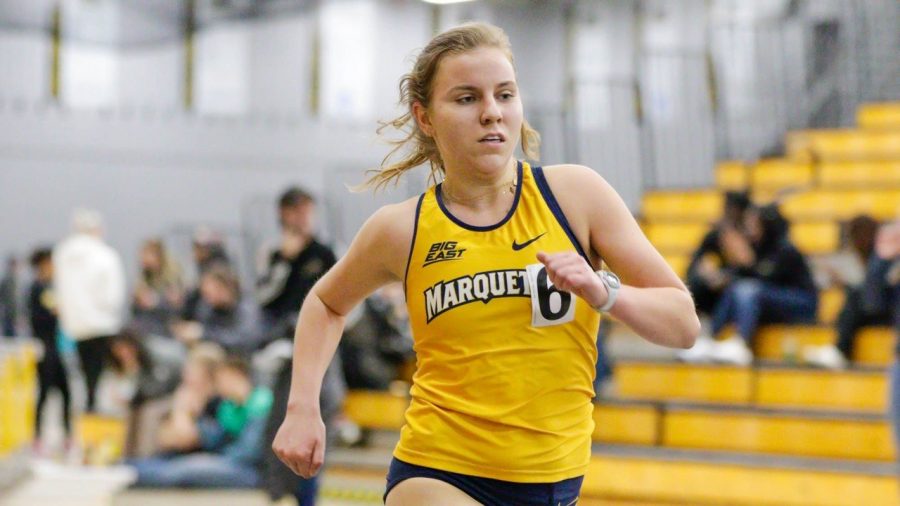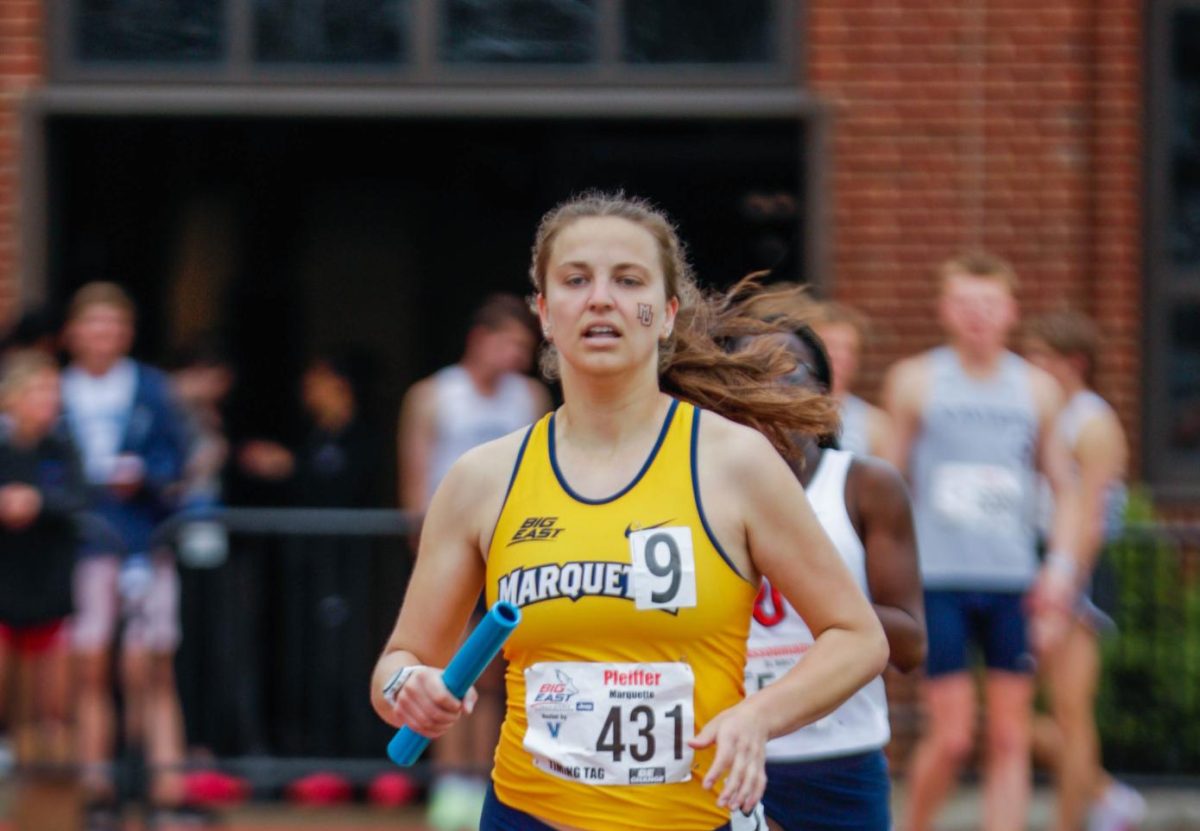On a hot, humid day in Kansas, goalkeeper Alec Wons watches his dehydrated teammate being dunked into an ice bath. With the teammate’s clothes still on, his relief is like a dog jumping in a pool on a hot day.
“I’ve taken plenty of ice baths before and they’re definitely not fun for the first couple of minutes but yeah, he was kind of just chilling in there,” Wons remembers. “It looked like he was looking kind of relieved to be in there, cooling down.”
It’s a constant battle for athletes to remain hydrated. The determining factor is whether an athlete’s urine is clear or as yellow as lemonade. The amount of liquids athletes should take in varies, per men’s soccer athletic trainer Lisa VanHoose.
“It’s going to be different, individual to individual and you can probably read things where people say eight cups of water a day but that’s not going to be enough for someone who’s working out two, three hours a day and losing a lot of fluids,” VanHoose says.
Men’s soccer, as well as other sports teams at Marquette, have the ability to know exactly how much fluids they lose during a practice. VanHoose says before and after practice the players do hydration checks.
“This isn’t all the time; it’s usually sporadic,” VanHoose says. “So they’ll weigh in before practice. Afterward we’ll weight them out. Then with however much they lose, they multiply that by what they should be consuming to replace that.”
VanHoose says she tells the players how much fluid to drink in a certain amount of time after practice so they will be prepared for the next day.
For Wons, that means drinking 16 ounces, equivalent to the size of a water bottle, for every pound loss in training.
Cross country head coach Mike Nelson addresses preparation for the next day, specifically referring to a byproduct of dehydration: cramping.
“I think sometimes that cramping, though, is more than just (a result of) the game,” Nelson shares. “It’s (due to) the chronic dehydration that might have come along days before.”
Nelson states if an athlete is only hydrating well the day of the game, that person is missing the boat.
“Maybe he or she wasn’t hydrating well … ever, or the week before,” Nelson says with a laugh.
Nelson says a lot of NBA players take nutrition between the second and third quarter seriously. Whether it’s fruit or a protein bar, along with a sports drink or water, players consume various solids and liquids so they can not only finish out the final half of the game, but also be prepared to compete the next day.
“It’s kind of having that mentality of (hydrating is) not just a one-time thing, it’s more of a behavioral habit that (a player should) do a good job of every time,” Nelson says.
Just check someone’s urine.
“When people outside (of men’s soccer) ask this I’m like, ‘Oh they got to think I’m crazy’ (thinking urine should be) like a lemonade color,” VanHoose says. “It should be a little yellow, it doesn’t have to be clear and it shouldn’t be dark.”








